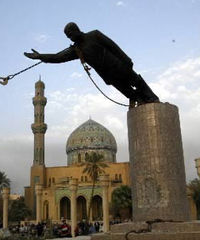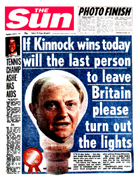 This BBC interview with the former Labour leadership contender Bryan Gould has been around for a few days but I think it's well worth a read, if only for his less-than-flattering views of the current crop of leadership hopefuls.
This BBC interview with the former Labour leadership contender Bryan Gould has been around for a few days but I think it's well worth a read, if only for his less-than-flattering views of the current crop of leadership hopefuls.Neither does Gordon Brown emerge unscathed, with Gould appearing to damn the Chancellor with faint praise. "He's got deeper roots than Blair with the party, more affection for the party than Blair, but the reason he was dumped as a leadership candidate by Peter Mandelson in 1994 was because Tony was more voter friendly."
His most complimentary words are reserved for Jack Straw whom he praises as "a politician to his fingertips", before adding obliquely: "I don't think he's got charisma or the personality to be prime minister, but that's not to say that someone without personality can't become the prime minister."
I rated Gould very highly during his time in British politics and was sorry to see him depart to the world of New Zealand academia, although I don't doubt that the move has proved a happy and fulfilling one for him personally.
In 1992, he was told that he would get John Smith's backing for the deputy leadership if he agreed to stand aside and allow Smith a free run at the leadership, but refused and was ultimately elected for neither post.
This begs the interesting counterfactual question whether, had he accepted the deal and thereby become Acting Leader at the time Smith died, Gould might have actually become leader instead of Tony Blair.
My bet is that he would, at the very least, have held on to the deputy leadership, and gone on to become a senior figure in the Blair administration, with John Prescott's Cabinet career following a similar path to that of Frank Dobson.




